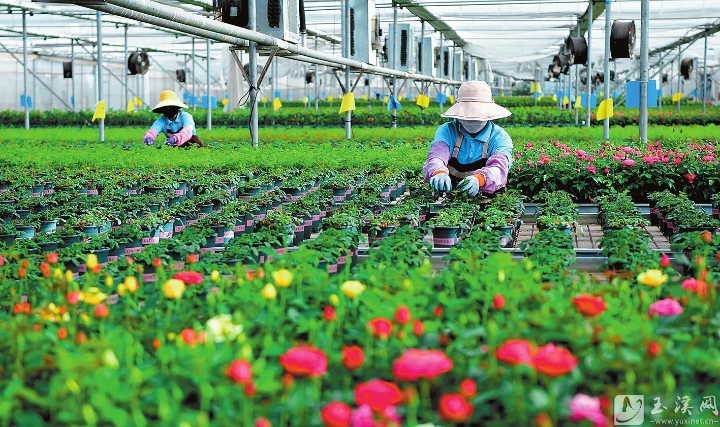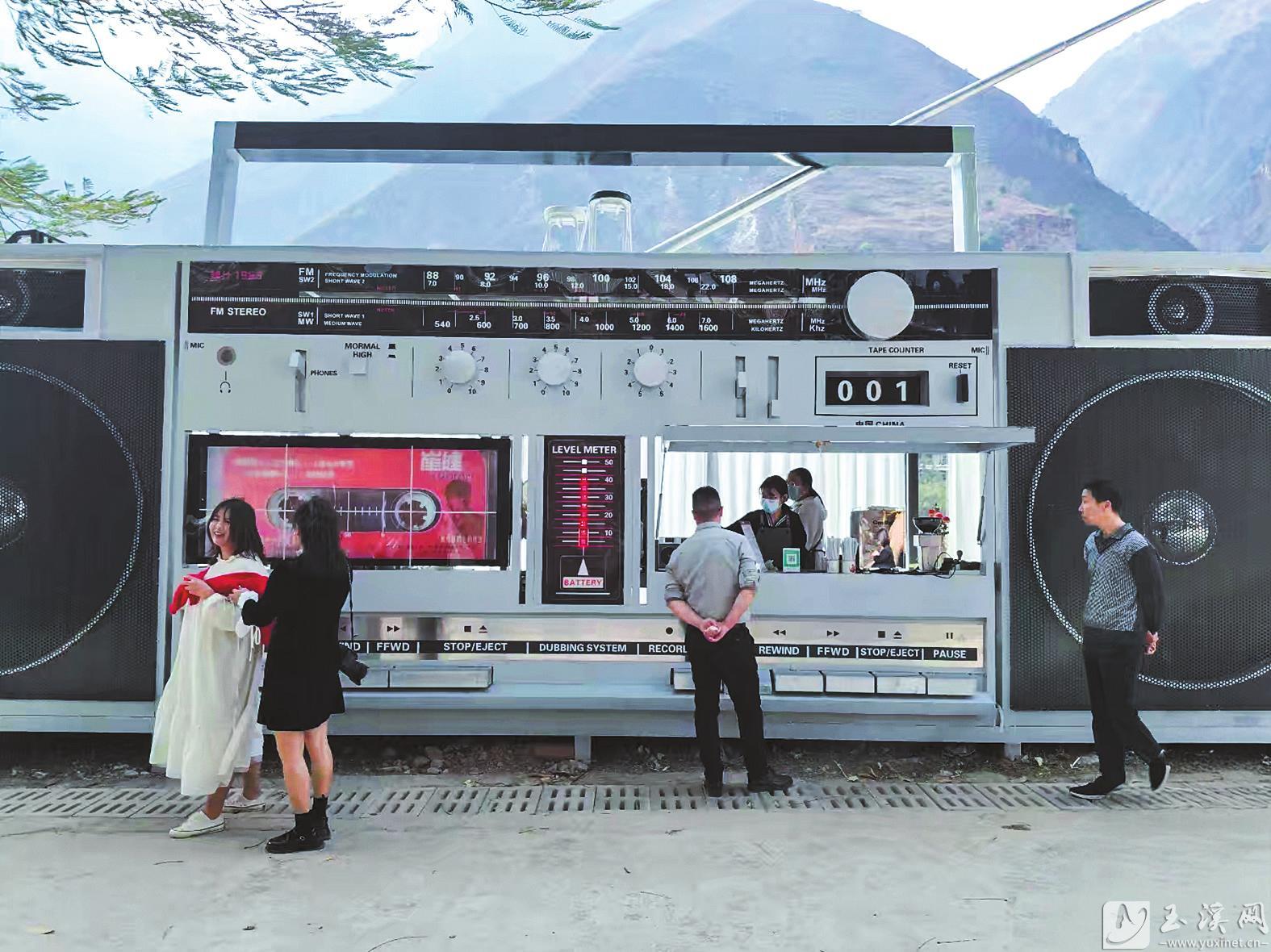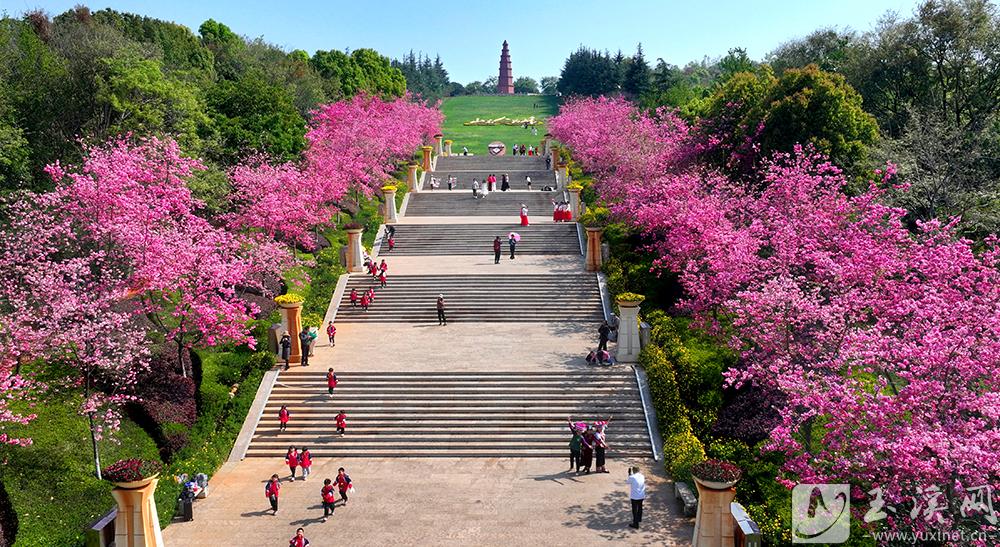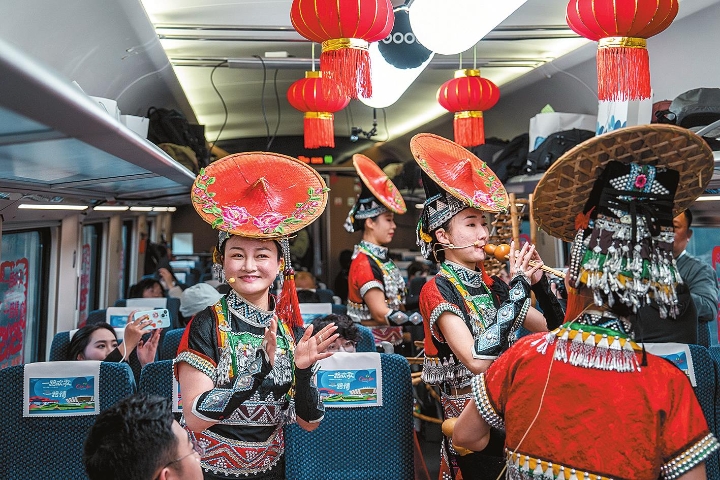 Yuxi Municipal People's Government
Yuxi Municipal People's Government
Hani People’s Way of Dressing
Far far away in the mountain there is village called Lutong. There I ran into the local folks with fragrance like grass and trees, who begin the day at sunrise and finish their work at sundown. They live a quiet life in such a busy world, pure as spring and peaceful like a mountain.
That’s Hani People in Yuanjiang County, from Suobi Tribe in Qingshui River area.20 days before Hani New Year, is a peaceful time for Hani people, when Ms. Yang Haonu gathered several female friends and relatives to collect cottons, knit cloth and dye them, with joy and singing. What a warm and beautiful scene in winter!
If you’d like to know Hani people, you should start from their clothes. Their way of dressing is essential, conveying a lot of cultural information rather than just wearing. The color, design and patterns reflect their living surroundings.
Women take all the responsibility of making clothes, from collecting cotton,spinning, weaving, indigo dying to sewing the whole suit.Cotton, as an important material for clothing, equally important as silk, linen and leather, traveled to China from India and Arab, with its full bloom and warm flower, gently takes care of Hani People and tells us a story of natural warmth through years of changes in temperature, for Hani People is one of the pioneers to plant cotton.
Besides its natural material cotton, plain color is also a feature of Hani clothes. Anyone dressed in bright colors like red or purple is never to be seen in Hani village. They adore deep blue for clothing mostly, taking it a similar color of mountains after raining and a plain color of nature itself.It is a fashion indeed, with oriental philosophy and artistic conception.
Using natural materials, cotton for weaving and indigo-woad root for dying, Hani People takes from nature and gives back as well, making their world harmonious, warm and beautiful.

On July 21st, workers were busy among the lush potted flowers in the intelligent flower planting greenhouse of Yuxi Ziyu Flower Industry Co., Ltd. This company is a leading enterprise in agricultural industrialization engaged in the production and sales of rose seedlings, potted roses, potted succulents and potted phalaenopsis. With a very productive operation mode, this company has built a research and development platform in cooperation with multiple scientific research institutes, and owns 17 national patents. Flowers from Yuxi are sold far to first-tier and second-tier cities across China and have become a well-known brand in Yunnan's flower industry.

Recently, visitors to Yimen have noticed a café in Luzhi Town, which looks exactly like a tape recorder. With 3.5 meters wide, 10 meters long, and weighing 6 tons, it perfectly replicates the iconic dual-cassette tape recorder from the 1980s, and the owner continuously plays pop music from the 1980s, attracting an increasing number of netizens and tourists to explore it. This highly creative café, which has gone viral on social media, has become a popular local landmark for photo check-ins.

Cherry blossoms are in full bloom at Hongtashan Park, attracting visitors with its springtime spectacle. On March 25, many citizens flocked here to admire the flowers, enjoy the scenery, and take photos, creating a beautiful landscape. Every year when the cherry blossoms bloom, Hongtashan Park draws a large number of tourists.

Performers of Yuxi Nie’er Bamboo Orchestra performed on the D87 China-Laos Railway international passenger train in Jan. 14. At 8:08 am, the China-Laos Railway international passenger train No. D87 left Kunming South Railway Station and headed for Vientiane, Laos. Different from the previous train, the joy and vibe of a transnational artistic performance was spreading all over the train, so that audience of all kinds of "screens" can feel the joy of this international train. (Photo by Hu Chao/Xinhua News Agency)
